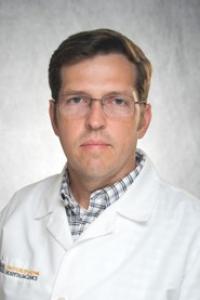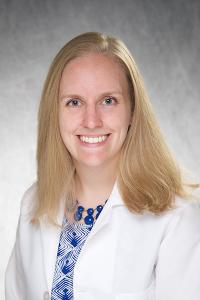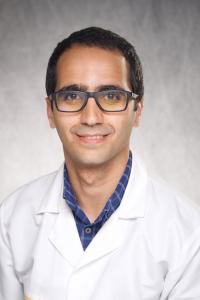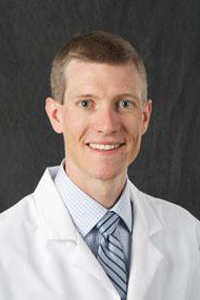Medical Microbiology Fellowship
About the Program
University of Iowa Hospitals & Clinics offers a one year ACGME accredited fellowship in clinical microbiology. The fellowship program combines training in the analytical, clinical, and administrative aspects of clinical microbiology with clinical research experience. The training is designed to prepare the fellow for a career in academic medicine. Exposure to infection control, molecular diagnostics, and molecular epidemiology is included. The clinical microbiology training faculty is comprised of three individuals of varied backgrounds and interests. The clinical research experience is generally in the laboratories of these faculty but can be arranged in the laboratories of other members of the University of Iowa faculty if desired.
FAQ
What Pathology fellowships are available at Iowa?
There are fellowships available in surgical pathology, cytopathology, hematopathology, microbiology, blood/bank transfusion medicine, and molecular pathology.
How is vacation time handled?
Fellows have 15 weekday vacation days a year. Professional leave for meetings is negotiated on an individual basis. Leave is granted for National Board exams and American Board of Pathology exams but not for board preparation courses. For job interviews or board preparation courses, each house staff member will be allowed five working days of leave. Additional days taken for job interviews or board preparation courses must use vacation.
What about fringe benefits such as book/travel funds?
Each fellow is given $1500/year for books/journals, meetings or memberships. Travel to national conferences is paid for by the department for fellows presenting abstracts.
How well do Iowa fellows fare in finding jobs after training?
The established reputation of excellence in training at the University of Iowa, combined with the recent trend of increasing demand and aging of current pathologists, has meant a tremendous opportunity for fellows from our program. All departing fellows in recent years have had no difficulty getting offers for desirable positions in both academic and private settings.
Program Accreditation
The Medical Microbiology Fellowship at UI Hospitals & Clinics is accredited by the Accreditation Council for Graduate Medical Education (ACGME). Information specific to program requirements for a pathology training program may be found at the ACGME’s Pathology Residency Review Committee.
Schedule/Rotations
Forty-six weeks of the fellowship training occurs at University of Iowa Hospitals & Clinics within the Department of Pathology’s Division of Medical Microbiology. Fellows also complete six weeks of rotations at the State Hygienic Laboratory at the University of Iowa that includes a two-week parasitology rotation and four one-week rotations in bacteriology/bioterrorism, virology/serology, mycology/mycobacteriology, and molecular diagnostics.
Education/Conferences
Numerous conferences are available. The required conferences are listed below.
- Microbiology Clinical Pathology lecture series - Oct.-Dec. - 7:30 am
- Pathology Grand Rounds – Noon, Weekly
- Infectious Diseases Grand Rounds - 2 pm, Weekly
- Friday Morning Case Conference - 7:30 am, Weekly
- Microbiology Case Conference – Noon, Monthly
- Institutional Infection Control Committee meeting – Noon, 3rd Tue. each month
Research/Investigators
Pathology has historically been defined by the intersection of laboratory science and clinical medicine. Each new advancement in science that has had an impact on diagnostic medicine has spawned a new area of "laboratory medicine", from the application of light microscopy to immunohistochemistry, from serology to flow cytometry, and molecular genetics. In order for a pathology department to lead, and not just follow, it must create and maintain "germinal centers" of those sciences related to human biology and pathobiology. This difficult and fragile process is called "research". It is the strength of our Pathology Department that this process has happened in the past. We are fully committed to its continuation.
How to Apply
If you are interested in applying to the Medical Microbiology Fellowship Program, please send or email to Donna Palmer a cover letter, CAP Standardized Pathology Fellowship Application, current curriculum vitae, personal statement, medical school Dean’s letter, three letters of recommendation that include one from the Director of your Residency Program and two additional faculty, USMLE scores (steps 1, 2, and 3), copy of ECFMG certificate (applies to international medical graduates only), copy of Permanent Visa (if applicable), and copy of medical school diploma.
Applications will be accepted until fellowship position(s) are filled.
Priority Deadline
Applications are accepted in on an ongoing, rolling basis until fellowship positions are filled for any given fellowship year. Typically we begin to review applications approximately 18 months prior to the fellowship start date. Applications will continue to be accepted until fellowship positions are filled.
Eligibility for Fellowship
Priority will be given to applicants with certification in clinical pathology (successful completion of ACGME-accredited training program in CP, AP/CP). Trainees with infectious diseases or other relevant background who intend to pursue a career including laboratory directorship will also be considered.
Certification Requirements
Medical specialty certification in the United States is a voluntary process which serves multiple purposes for the trainee and the public.
Certification is
- one mission of the training program to produce trainees who meet board eligibility criteria;
- distinguishes a physician as someone with a distinct level of expertise;
- provides more opportunities when applying for employment;
- a commitment to life-long improvement for providing the best patient care; and
- elevates physicians into the ranks of doctors committed to the highest standards of healthcare.
For more information visit the American Board of Pathology for specifics on board certification requirements.
The Interview
We will interview about 3-4 candidates for 1 position beginning in late September and ending by mid-March. Orientation for all new fellows begins on July 1, so you must be available for that start date and be licensed in Iowa by June 30.
I got an interview! Now what?
What should I expect the night before my interview?
The Fellowship Program Director and one or two additional faculty will join the candidate for dinner around 6 PM. Dress in casual attire but remember to bring/wear a coat/jacket appropriate for the weather.
This dinner is an opportunity for you to meet the faculty and have them answer any questions you may have. Don’t be shy about asking about the things that are on your mind.
What should I expect on the interview day?
The fellowship coordinator will meet you around 8:30 a.m. at the fountain entrance of the hospital and will escort you to your first interview. We suggest business attire for your interview day.
The components of your day will include: an overview of the fellowship program, individual meetings with the Head of the Pathology Department, Vice Chair of Educational Affairs, faculty and fellow(s) within the division. If there is a specific person you would like to visit with please let us know and we will try our best to accommodate your request.
Our People
Our people are the heart of our program. From the reception desk to the laboratory technicians, from the gross room to the molecular laboratory, from the blood bank to the FNA clinic, from the resident room to the faculty offices, you will find our people in our department interested and eager to help you become the best pathologist you can be.
At Iowa, you will be exposed to some of the best clinicians, teachers and researchers in our profession. We provide high-powered opportunities for you to learn career-long lessons from these dedicated professionals while maintaining an open-door philosophy and collegial atmosphere.
Feedback is important to us, so feel free to use this QR code for anonymous comments.

Current Fellow
No Fellow for 2024-2025
Past Fellows

Randall Scott, MD
(2023-2024)
BS: University of Oklahoma, 2010-2014
MD: University of Oklahoma Health Sciences Center, 2014-2020
Residency: CP, University of Oklahoma Health Sciences Center, 2020-2023
Current Position: Genetic Molecular Fellow, University of Iowa Hopsitals and Clinics

Meredith Parsons, MD
(2021-2022)
BS: University of Iowa Carver College of Medicine, Iowa City, Iowa, 2007-2011
MD: University of Iowa Carver College of Medicine, 2013-2018
Residency: CP, University of Iowa Carver College of Medicine, 2018-2021
Current Position: Clinical Assistant Professor, University of Iowa, Iowa City, Iowa

Hasan Samra, MD
(2020-2021)
Medical School: MD, Syrian Private University, Syrian Arab Republic, 2007-2014
Residency: AP/CP, Medical College of Wisconsin Affiliated Hospitals, Milwaukee, Wisc., 2016-2020
Current Position: Faculty, Augusta University, Augusta, Ga.

Harry Porterfield, DO
(2016-2017)
Medical School: Rocky Vista University, Parker, CO, 2007-2012
Residency: Louisiana State University Health Science Center, New Orleans, LA, 2012-2016
Additional Training: Fellowship, General Medicine, Department of Internal Medicine, University of Iowa Hospitals & Clinics, 2017-2019
Fellowship, Molecular Genetic Pathology, UI Hospitals & Clinics, 2018-2019
Current Position: Staff Clinician, Department of Laboratory Medicine, NIH Clinical Center, Bethesda, Md.

Daniel Marko, BMBS
(2010-2012)
Medical School: Flinders University of South Australia; 2001-2004
Residency: AP/CP, University of California, Davis; 2005-2009
Additional Training: Hematopathology/Immunopathology Fellowship, University of California, Davis; 2009-2010 and Blood Banking/Transfusion Medicine Fellowship, University of Iowa; 2012-2013
Current Position: Hematopathologist, Diagnostic Services of Manitoba
Transfusion Medicine Consultant, Canadian Blood Services
Assistant Professor, University of Manitoba, Department of Pathology, Winnipeg, Manitoba, Canada

Sophie Arbefeville, MD
(2008-2010)
Medical School: St. George's University School of Medicine, Grenada, West Indies, 2002
Residency: AP/CP, Stony Brook University Medical Center, 2004-2008
Additional Training: Clinical Microbiology Fellowship, University of Iowa Hospitals and Clinics, 2008-2009 and Research Clinical Microbiology Fellowship, University of Iowa Hospitals and Clinics, 2009-2010
Current Position: Assistant Medical Director of Clinical Microbiology & Virology, University of Minnesota, Minneapolis, MN

Alan Junkins, PhD
(2007-2009)
Medical School: University of Wisconsin, 1991
Additional Training: Clinical Microbiology Fellowship, University of Iowa Hospitals and Clinics, 2007-2009
Current Position: Chief of Microbiology, Norton Healthcare, Louisville, KY
Fellowship Leaders
Program Director

Bradley Ford, PhD, MD
Associate Professor of Pathology
Director of Clinical Microbiology
200 Hawkins Drive - C606 General Hospital
Iowa City, IA 52242-1009
Phone: 319-356-2990
Email: bradley-ford@uiowa.edu
Fellowship Coordinator

Donna Palmer
200 Hawkins Drive
C684 General Hospital
Iowa City, IA 52242
Phone: 319-356-0319
Fax: 319-384-9613
Email: donna-palmer@uiowa.edu
Department Chair and Faculty
Key Faculty and Staff
|
Bradley Ford, MD, PhD |
Meredith Parsons, MD |
|
|
Kunatum Prasidthrathsint, MD |